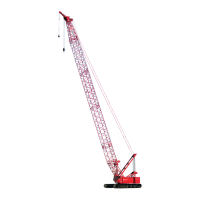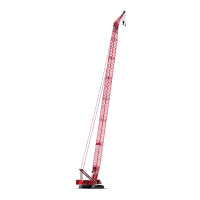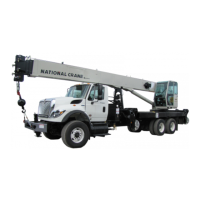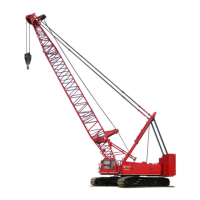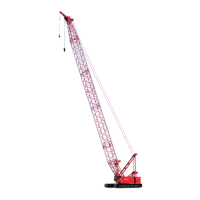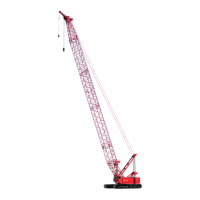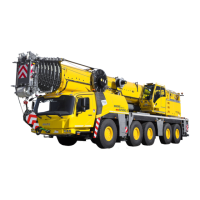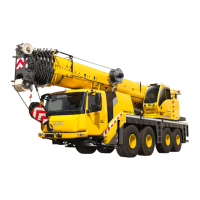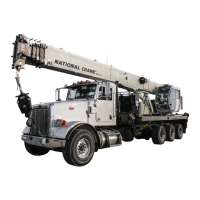Manitowoc Published 12-05-17, Control # 032-23 3-35
18000 OPERATOR MANUAL OPERATING CONTROLS AND PROCEDURES
PREPARING CRANE FOR OPERATION
CALIBRATION PROCEDURES
To ensure proper operation of the crane functions, the
hydraulic system must be properly calibrated. See Hydraulic
System Calibration Procedures in this section for calibration
requirements.
WARNING
Read Capacity Charts!
Do not attempt to operate crane without first reading and
understanding capacity charts.
Crane must be rigged and operated according to
instructions given in capacity charts and rigging guides.
Unless otherwise specified in capacity charts, all crane
operations must be performed with crane level to within
one 1% of grade in all directions —1 ft in 100 ft (0,3 m in
30 m); otherwise, crane could tip.
Do not operate crane, to include raising boom from
ground level, if wind exceeds limits given in Capacity
Charts. Contact your local weather station for wind
velocity.
Failing to comply with capacity chart requirements can
result in tipping or structural failure of boom/luffing jib.
Moving Load Hazard!
Operator shall select proper operating mode before
operation.
Unexpected drum motion or improper limit responses can
result if wrong mode is selected.
Limit bypass switch must be in ENABLE position and all
available limits must be operational before operating
crane.
Sound horn to alert personnel that operation is about to
begin.
CAUTION
Machinery Damage!
Before operating crane at start of each shift, perform
preventive maintenance checks and lubrication
requirements listed in Sections 5 and 6 of this manual.
Adjust operator’s seat as shown in Figure 3-15
.
Jacking Cylinder Damage!
Rotating bed jacking cylinders can extend during
operation.
Operator must check cylinders at start of each shift and
midway through each shift. Check that jacking cylinders
have not extended more than on inch (25 mm). See decal
on cylinders for additional instructions.
Retract cylinders fully if they have extended.
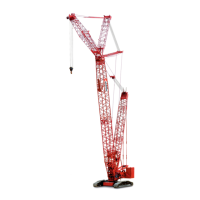
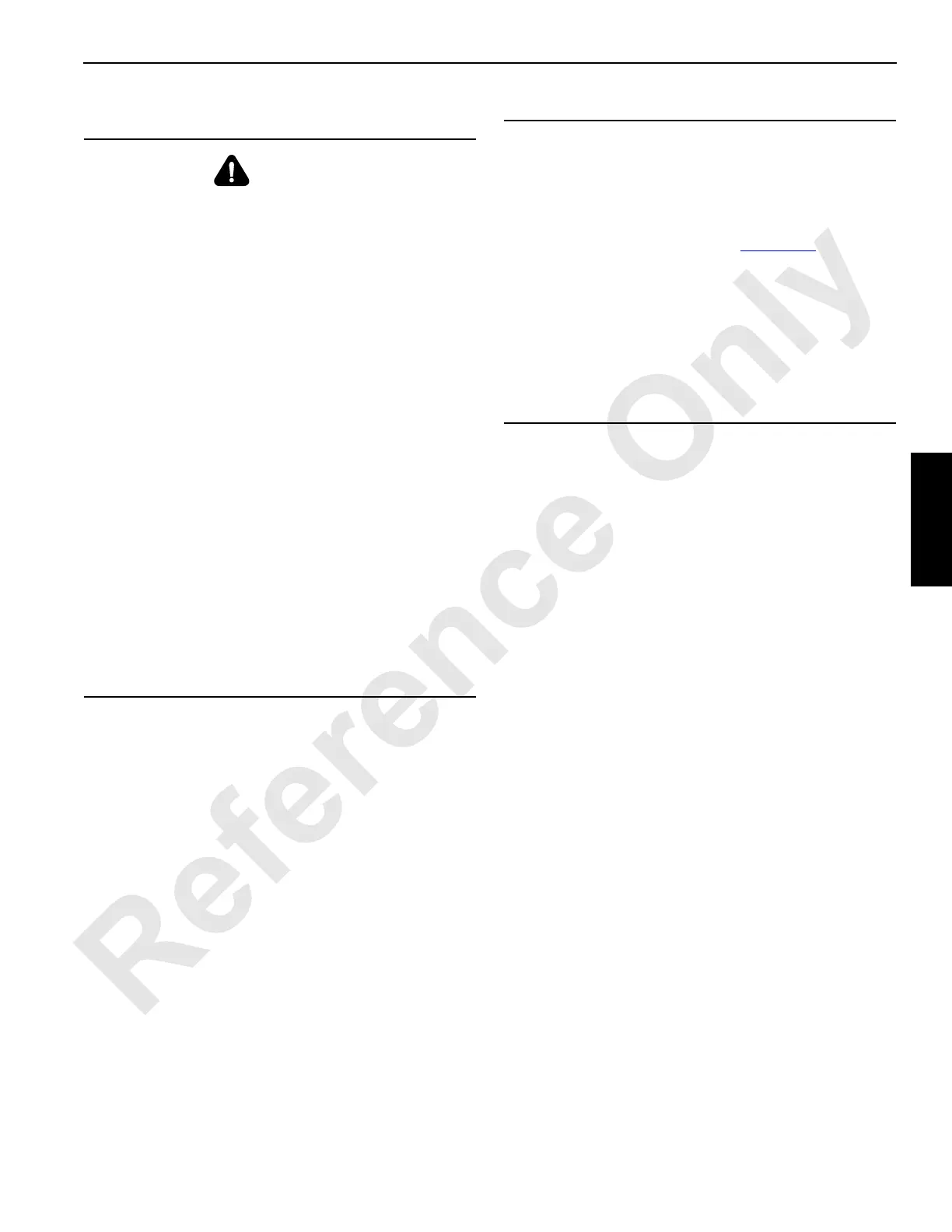